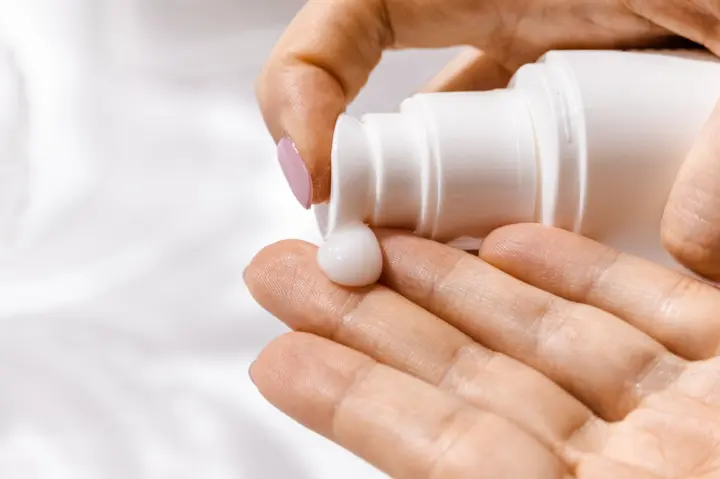Sunscreen: why you need it and how it works for you.
Sunscreen is an important part of a complete sun protection strategy to protect your skin from sun damage. Studies show that regular daily use and as directed for SPF 15 sunscreen can reduce the risk of squamous cell carcinoma (SCC) by about 40 percent and reduce the risk of skin cancer by 50 percent. It helps prevent premature skin aging caused by the sun, including wrinkles, sagging and age spots.
Who should use sunscreen?

The short answer is everyone! Men, women and children over the age of 6 months should use sunscreen every day. Remember that your skin is damaged by sun exposure throughout your life, whether you get sunburned or not. Babies under 6 months are the only exceptions; their skin is highly sensitive. Shade places and sun-protective clothing are the best ways to protect children.
Recommend
What kind of sunscreen should you use?

The Skin Cancer Foundation believes that the best sunscreen is the one you're most likely to use, as long as it provides safe, effective, and broad-spectrum protection with an SPF of 15 or higher.
Sunscreen ingredients
Sunscreen contains active ingredients that help prevent UV rays from reaching your skin. Here's how the two types of sunscreen work:
The physical (mineral) components of sunscreen (including titanium dioxide minerals and zinc oxide) reflect and scatter rays (such as a shield) before they penetrate your skin.
Chemical sunscreen ingredients (such as avobenzone and octisalates) absorb UV rays (such as sponges) before they damage your skin.
Are sunscreens safe?

Physical sunscreens may be less irritating than chemical sunscreens, both types have been tested and shown to be safe and effective. In fact, many sun protection products available today combine both types of ingredients. Some people may think that physical sunscreens are more "natural" or even "organic," but they are actually inorganic mineral compounds. Sunscreens that many people call "chemical" are actually "organic UV filters.
What does SPF mean?
SPF number tells you how long it takes for UVB rays from the sun to redden your skin if you apply sunscreen exactly as directed compared to the amount of time without sunscreen. So, if you use a product with SPF 30 correctly, it will take 30 times longer for burns than not using sunscreen. What level of SPF do I need? If you're indoors most of the day with only short periods in the sun, you can use sunscreen with an SPF of 15 or higher. If you spend a lot of time outdoors, especially when the sun is stronger, you need a sunscreen with SPF 30 or higher and waterproof. Regardless of SPF, reapplying every two hours is key. Sunscreen should also be reapplied immediately after swimming or sweating.
Extensive protection

In the past, most sunscreens only included information on product labels about protection from UVB rays — rays that cause sunburn, not UVB rays — that cause tanning and premature aging. Now that the dangers of UVA radiation are well known, broadband sunscreens provide clear information on product labels about protection against both UVB and UVA rays.
Choosing sunscreen: what to look for?
• Wide spectrum: protects your skin from both UVA and UVB rays.
• SPF 15: Ideal for daily and accidental exposures, such as walking or driving
• SPF 30 or higher: Essential for extended outdoor activities, including hiking, hiking, swimming and outdoor sports.
• Waterproof and highly waterproof: for swimming or intense exercise. There is no waterproof sunscreen; they all go away. Rated waterproof sunscreens are tested to be effective for up to 40 minutes of swimming, while highly waterproof sunscreens remain effective for up to 80 minutes in water.
When should I put on sunscreen?

Every day! The best practice is to apply it 30 minutes before going out to allow the sunscreen to stick to your skin. Even when it's cloudy, up to 80 percent of the sun's ultraviolet rays reach Earth. Lack of protection on a cloudy day can damage the skin.
Where should I put sunscreen?
Experts recommend applying sunscreen all over the body before wearing the clothes you will wear in the daytime. At the very least, you should use sunscreen on every part of your body exposed to the sun, including those areas that are easy to miss: the top of your ears, the back of your neck, your scalp (on the midline), the top of your feet and behind your knees.
Other things to consider
Skin cancer risk factors: Your skin type and family history will determine the level of protection required for you.
• Sensitivity to light: Regardless of your skin type, certain medications and disorders make your skin hypersensitive to the sun, increasing your protection requirements.
• Skin conditions: You can choose from sunscreens for dry, oily skin, acne-prone and sensitive skin.








